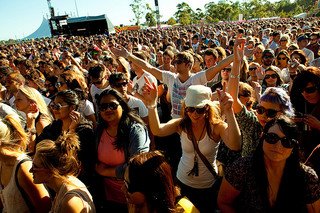This article was originally a report published for Intertainment Media’s Ingaged Blog, makers and distributors of the KNCTR and Ortsbo.
We’re obsessed with being able to numerically rank anything and everything on the Internet. So much of our online lives are attached to numbers. We have a very visible count of friends on Facebook, followers on Twitter, readers of our RSS feed, retweets of an article, likes of a Facebook fan page, and view counts of our YouTube video.
Influence measurement services such as Klout and Kred are trying to ride that wave of attaching a numerical indicator of our ability to influence others. I’m a little down on these services solely because they predominantly just measure Twitter behavior and they give higher credence to the sharer of content than the creator of content (read: “Do Online Reputation Measurement Services Like Klout and Kred Support a New Kind of Plagiarism?”)
Regardless of the debatable quality of these services, they’re being used to easily determine influence. The question is do we understand the theoretical underpinning of what creates “influence?”
When do you influence?
 When we talk about “influencers” we’re looking for those individuals that have the ability to affect others.
When we talk about “influencers” we’re looking for those individuals that have the ability to affect others.
Here are some theoretical thoughts on influence:
- You can’t bestow the title “influencer” to yourself: While you can call yourself a doctor, lawyer, or whatever other profession, you can’t call yourself an influencer. That’s a title that’s bestowed upon you by someone else, and never directly to you. Someone who values your thoughts and content will refer to you as an influencer to another.
- Influence is different than having an audience: An audience member is one who is tuned in and entertained by what you do and say. To influence goes a step further and causes one to take action Or they can cause you to make a behavioral/emotional change.
- We are all influencers: We all have the ability to influence our family and friends.
In a discussion on Quora about “When can you call yourself an influencer” there was amazing consensus that influence is not about counting followers, retweets, etc. Influence is just about your ability to affect change in another person. I’d like to believe that’s true, but people keep saying they don’t look at the numbers, yet it’s the only thing we actually look at when we refer to someone as an influencer.
Enough of the warm fuzzies, how do I know who are the influencers?
 Regardless, of the theoretical there is still a desire to uncover who is influential online. That’s why the influence measurement services have done so well. They put a rating to the person and provide the methodology. Problem is no one looks at the methodology. They just look at the number. I see your number is higher. That means you’re more influential, right?
Regardless, of the theoretical there is still a desire to uncover who is influential online. That’s why the influence measurement services have done so well. They put a rating to the person and provide the methodology. Problem is no one looks at the methodology. They just look at the number. I see your number is higher. That means you’re more influential, right?
In the discussion, my favorite response was from Yuriy Gumen, VP, Product Management at mBLAST, who in the midst of the theoretical discussion about influence pushed others to realize that we still have to solve the issue of discovering who is influential online. He boiled influence it down to five factors. I added a sixth one, Quality:
- Volume: How much content the person produces?
- Quality: What is the value of the content produced? (this weeds out content farms and spammers)
- Popularity: How many people are “listening” to the person?
- Authority: How many experts are “listening”-citing the person?
- Relevance: Is the content created by the person relevant to your area of interest?
- Action: Can this person produce a butterfly wing effect?
We actually do have ways to measure all of these things, yet the current measurement systems are doing a poor job. They mostly rate popularity, authority, and relevance but only within Twitter. I’d like to see influence measurement systems take all six into account.
In other news, TIME released its list of 100 most influential people today. I made TIME’s list of 100 people they didn’t consider influential.
Creative Commons photo attribution to Anirudh Koul, Photos by Mavis, and laubarnes.




